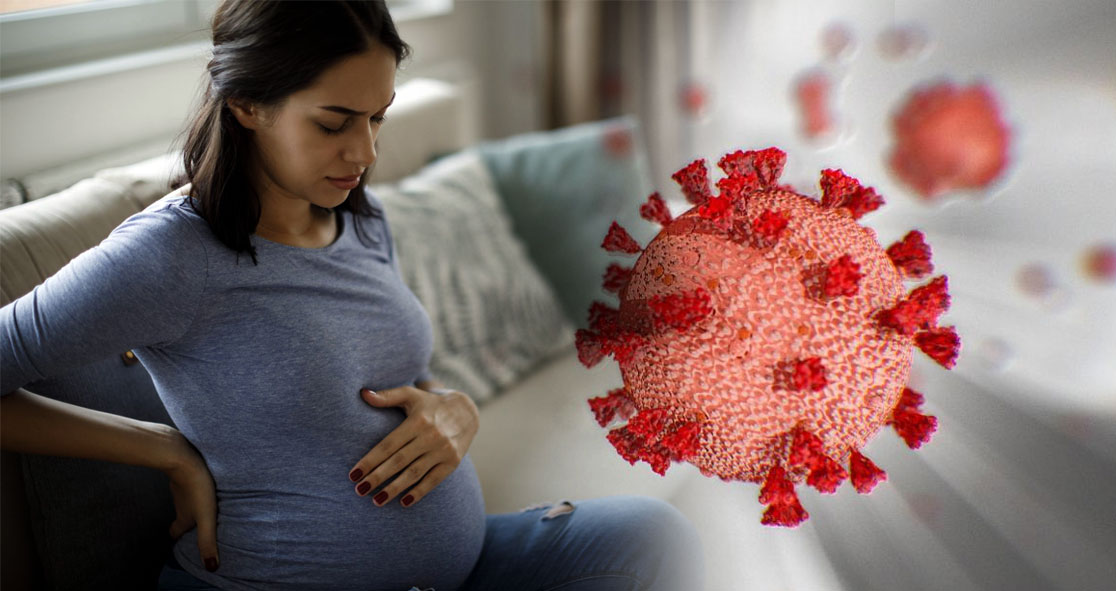A new Scotland study has found that women who catch COVID infection towards the end of their pregnancy are more vulnerable to birth-related complications, according to Science Daily.
Women catching the virus at the end of their agency are more likely to have complications than those who get the infection in the earlier stages of pregnancy or those who have not had COVID at all.
The complications include preterm births, stillbirths, and newborn deaths, which are common in women who have the virus 28 days, or less, before the expected date of delivery. The majority of complications, including critical care admissions, occurred in unvaccinated women.
Researchers said more should be done to encourage pregnant women to get vaccinated.
The study, published in the journal Nature Medicine, included more than 87,000 women who were pregnant between the start of vaccination uptake in December 2020 and October 2021.
Since the start of Scotland’s vaccination programmer, 4,950 cases of COVID during pregnancy have been confirmed, with 77% of these cases in unvaccinated women. About 12% of cases were in partially vaccinated pregnant women and 11% of cases in fully vaccinated women.
The researchers found that the extended perinatal death rate among babies born within 28 days of their mother developing COVID-19 was 23 per 1,000 births, according to Science Daily.
All newborn deaths that occurred were among women who were unvaccinated. Nearly 17% of babies born within 28 days of their mother catching the virus were delivered prematurely.
However, the authors said it is impossible to say if COVID contributed directly to the deaths or preterm births, as they had no access to detailed clinical records of all women.
Furthermore, the study found that admissions to hospital and critical care were also significantly high in unvaccinated pregnant women with COVID.
The study also monitored complications in pregnant women who were vaccinated. In those women, the perinatal mortality and preterm birth rates within 28 days of receiving a vaccine were similar to the background rates at 8% (4 per 1,000, providing further reassurance on the safety of vaccination during pregnancy.
The study co-lead author Dr. Sarah Stock of the University of Edinburgh’s Usher Institute said, “Our data add to the evidence that vaccination in pregnancy does not increase the risk of complications in pregnancy, but Covid-19 does. COVID-19 vaccination in pregnancy is crucial to protect women and babies from preventable, life-threatening complications of COVID-19.”
Lead author Prof. Aziz Sheikh, Director of the Usher Institute, said, “Our national data show that being vaccinated during pregnancy was associated with reduced risk of serious outcomes for both mother and baby.”
“Vaccine uptake has been much lower in pregnant women than in non-pregnant women of a similar age in Scotland,” he added. “As cases of Omicron continue to rise, I strongly encourage all pregnant women to take up the offer of a vaccination or booster as these will help protect them and their unborn child.”
Another co-lead author of the study Dr. Rachael Wood said, “Our data provide valuable information on both Covid-19 infections and vaccinations among pregnant women.
“It is clear that vaccination is the safest and most effective way for pregnant women to protect themselves and their babies from severe Covid-19 disease,” added Dr. Wood, who is a consultant in Public Health Medicine, Scotland. “Vaccination can be given at any stage of pregnancy, so I strongly encourage women who are pregnant, or hoping to become pregnant, to get fully vaccinated as soon as possible.”























